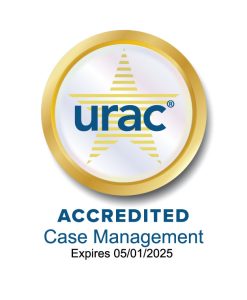By: Renee Dain, Sr. VP, Communications and External Affairs
As parents, caregivers, or loved ones of an adult with specific healthcare needs, the path we walk is often filled with challenges, joys, and, most importantly, the desire to ensure the individual has a fulfilling life. Advocacy plays a crucial role in ensuring that one’s healthcare needs are met and that they have access to the services and support they deserve. This blog will explore the importance of advocacy and self-advocacy and how advocacy can support your loved one in developing a vision for the future.
What is advocacy and why is it important?
Advocacy means speaking up for your loved one, ensuring that their voice is heard, and that their preferences and values are respected in the decisions regarding their health and wellbeing. As an advocate, you can bridge the gap between medical professionals, community services, and your loved one’s needs. This often involves:
- Coordinating healthcare providers to ensure they are offering comprehensive care.
- Ensuring they receive the best care possible within their capabilities and desires.
- Navigating legal, financial, and insurance systems to make sure they have access to services.
- Fostering independence where possible, while ensuring safety and well-being.
The role of an advocate is a delicate balance of understanding your loved one’s needs, fighting for their rights, and being a source of support. Advocacy is also about long-term planning and preparation for life’s uncertainties, especially as the individual’s needs evolve over time.
What is self-advocacy, and can it be taught?
While advocating on behalf of your adult child or loved one is essential, one of the most empowering gifts you can give them is the ability to advocate for themselves. Teaching self-advocacy not only fosters independence but also builds confidence, giving them a sense of control over their own healthcare decisions and life choices. Self-advocacy can be taught. The process may require patience, practice, and the right support systems. The earlier you begin teaching self-advocacy, the more natural it will become. Even in childhood, allow your child to make small decisions for themselves, such as what they want to wear, what activities they want to participate in, or what foods they prefer. As they grow older, it encourages them to express their preferences in a variety of settings—at school, in medical appointments, and within the family.
- Other important steps include:
- Encouraging Open Communication
- Fostering Decision-Making Skills
- Teaching Understanding of One’s Rights
- Helping Build Confidence
- Providing Opportunities for Self-Advocacy
- Celebrating Autonomy
Children and young adults often learn by example, so be sure to model effective advocacy yourself. Demonstrate how to interact with healthcare providers, speak up in meetings, and make decisions confidently. Show them how you handle challenges, whether in dealing with insurance companies or advocating for better accommodations at work or school. Your approach to advocacy will set a powerful example and teach your loved one how to handle similar situations in their own life.
What does advocacy have to do with developing a vision for your loved one’s future?
One of the most important aspects of advocacy is developing a vision for your adult child or loved one’s future. While you might have strong ideas about what you want for them, it’s crucial to also understand their hopes, dreams, and goals. Developing a vision for their future means considering:
1. Quality of Life:
What does a fulfilling life look like for your loved one? This could include employment opportunities, living arrangements, relationships, and social activities. Is independent living an option, or will they need a group setting or caregiver support? Having a clear picture of their potential future, both in the short and long term, will guide your advocacy efforts and decisions.
2. Health and Wellness Goals:
A vision for the future should also include physical and mental health considerations. What are the long-term goals for their healthcare, including managing chronic conditions or improving skills like communication, mobility, or self-care? Work with healthcare professionals to set realistic, measurable health goals that are in line with your loved one’s abilities and needs.
3. Autonomy and Independence:
Every individual deserves the opportunity to live as independently as possible. Your vision for their future should include efforts to promote their autonomy—whether it’s through job training, financial independence, or learning daily living skills. Advocacy often involves negotiating with support agencies to create pathways for growth, even when the person has significant needs.
4. Legal and Financial Planning:
As your loved one grows older, legal and financial planning becomes crucial. Consider guardianship options, power of attorney, and trusts that can secure their financial future. These plans not only protect your loved one but also ensure that they receive the proper healthcare and services once you are no longer able to act on their behalf.
Conclusion
Understanding how to navigate the advocacy path can be challenging. We are here to help. For more in-depth information and support, join our upcoming Community Enrichment Series Webinar on Wednesday, December 11th at Noon – 1:00 p.m., where we’ll dive deeper into Navigating the Advocacy Path: Supporting an Adult with Specific Healthcare Needs. Fay Alexander, MHR, CCHW, Operations, Compliance, and Contracts Coordinator for The Coordinating Center will talk about the importance of advocacy, developing a vision for your adult child or loved one’s future, identifying your adult child or loved one’s priorities for themselves and explore resources and tools. Click HERE to register for the December Webinar.







